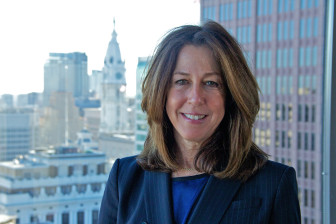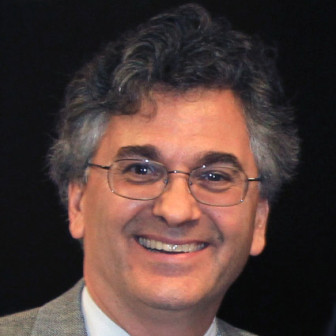As the coronavirus filled up hospitals across Louisiana, three youth in one dormitory at the Swanson Center for Youth in Monroe became feverish. One spiked a fever high enough to feel cold and clammy, said the youth identified in court records as “D.M.” His dormitory-mates went to the infirmary, were given Tylenol and told to return to the infirmary if their symptoms worsened, he said.
For three days last week, U.S. District Judge John W. deGravelles used the court’s Zoom app to watch testimony for a lawsuit brought by the national Juvenile Law Center, law firm O’Melveny & Myers and the New Orleans public interest nonprofit The Promise of Justice Initiative and its frequent collaborator, New Orleans defense attorney John Adcock.
The potential class-action suit was brought on behalf of incarcerated youth and their parents, who testified that the 220 youth in the custody of the Office of Juvenile Justice face “irreparable injury” because OJJ is failing to address the spread of COVID-19 in the state’s four secure-care juvenile justice facilities.
Attorneys for the state of Louisiana deny that claim, saying that OJJ’s “thoughtful and evolving response to COVID-19 is working.” Throughout the hearing, they maintained that stance: that the agency had handled everything well and there was no need to adjust its approach.
After getting final briefs on Wednesday, DeGravelles will decide whether the danger that COVID-19 poses to the youth in OJJ’s custody is great enough to grant a temporary restraining order (TRO) against the agency, to allow more youth to go home on extended furloughs. That would particularly apply to teens with six months or less left in their sentence, those who have contracted COVID-19 and those who suffer from underlying conditions like asthma, who are more likely to have a worse reaction to the virus.
Early in the pandemic, a few scattered jurisdictions did release hundreds of youth. But Louisiana, like most states, released very few. This lawsuit, and a similar one that the Juvenile Law Center filed in Pennsylvania, are being watched closely by juvenile advocates in other states that have also seen few releases despite high levels of infection.
Plaintiffs argued that keeping youth in custody while rehabilitative programming has been suspended violates their constitutional rights. “Unlike adults in prisons, children are not confined for the purpose of punishment; the Louisiana Constitution explicitly provides that children in OJJ custody are confined solely for the purpose of receiving ‘rehabilitation and individual treatment,’” the plaintiffs’ motion for the TRO hearing says.
Staff considerations

Juvenile Law Center
Marsha Levick
Marsha Levick, Juvenile Law Center’s chief legal officer, argued in her opening statement that the court must take into consideration “the heightened protections that are owed to adolescents” by a series of U.S. Supreme Court rulings that find adolescents to be different from adults.
In Louisiana, OJJ confines youth under the very premise that their behavior can be changed through education and positive programming. “We can hardly ask this court to ignore the dire public-health crisis that we are all confronting,” Levick said, “but we cannot allow the urgency of the pandemic to erase our clients’ fundamental 14th Amendment rights to treatment and rehabilitation.”

Vincent Schiraldi
Sending some youths home would accomplish two goals: It would allow for more social distancing in OJJ facilities and would also make sense for facilities juggling reduced staff because of COVID spread among employees, said Vincent Schiraldi, who ran juvenile justice programs in New York City and Washington, D.C., and now is a senior research scientist at the Columbia School of Social Work and co-director of the Columbia Justice Lab.
“You want fewer kids, so staff can manage the kids they have,” he testified, noting that OJJ accommodated its COVID-positive staff, trained to work with children, by bringing in Department of Corrections staff, who lacked that training. “Unless you can manufacture trained staff in the basement, the only way to maintain staff-kid ratios is to have fewer kids,” he said.
Other experts testified that tapping into the state’s existing furlough program made sense because it’s a fairly simple administrative process: OJJ requests furloughs based on a youth’s conduct and other factors and sends the recommendations to local judges for approval. The only other way youth can be released is for each judge to open each individual case and make sentencing modifications, a more cumbersome process.
Though OJJ’s inaction is similar to the inaction seen at adult facilities across the nation, the solutions put forward in last week’s hearings make clear that Louisiana’s juvenile systems has the potential to react differently because it went through intensive reforms 17 years ago, when the state created OJJ as a separate entity designed to rehabilitate youth, with a clear division from the adult prison system. OJJ’s regular and well-used furlough program, staff trained in youth behavior, dormitories that hold 12 youth instead of 100, even unimplemented plans that could help combat an epidemic — all of those aspects are in place because of the reforms of 2003.
For some, the hearing shows the fragility of those reforms and the associated statutory framework. “The depopulation mechanisms exist because state law recognizes that children should be returned to their families and communities as soon as they are ready. But OJJ is not using these mechanisms at a time when they are also critical to public health. OJJ is actually arguing that they cannot use them,” said Rachel Gassert, policy director at the Louisiana Center for Children’s Rights, which is not a party to the lawsuit but has been involved in the issue because its lawyers have filed modifications on behalf of incarcerated youth.
Positive youth put in solitary
Among other demands, in the motion for last week’s hearing, plaintiffs’ attorneys asked DeGravelles to weigh in on OJJ’s failure to test youth for the past two months and to restart the educational and rehabilitative programming suspended on March 27. The latter point, however, may be moot as the state steps into Phase 2 of reopening, relaxing many virus prevention strategies. Some youth testified about a few classes that had restarted prior to the hearing.
Last week at the hearing, parents told the judge they were worried about some OJJ practices, like sending feverish youth back into crowded dormitories, because the coronavirus is highly contagious, especially in a correctional setting.
OJJ’s practice of placing COVID-positive youth in solitary confinement disciplinary cells also likely reduced the number of youth who voluntarily reported symptoms.
D.M. himself never had a fever. “I had a sore throat and stuff,” he told the judge. That is now considered a possible symptom of coronavirus. But D.M. was never tested, because he didn’t have a fever. In the early days of the pandemic, in March and April, people without fevers often weren’t tested in Louisiana.
Still, even with OJJ’s high bar for testing, seven youth and three staffers had tested positive by early April at the Bridge City Center for Youth, another OJJ facility. At that time, that was a far higher number of cases than at any other juvenile justice facility in the nation. Plus, OJJ had an extremely high rate of positive cases: 28 of 30 youth tested were positive.
There’s no current data on COVID-positive youth in OJJ’s facilities since the agency stopped testing youth on April 12. OJJ administrators told the judge there was no need to test anyone since then; no one has had symptoms, they say.
But three experts who testified for the plaintiffs last week found that conclusion unlikely. “I’m concerned because staff doesn’t always tell the truth and kids don’t always tell you that they’re sick,” Schiraldi said.
This story has been updated.
